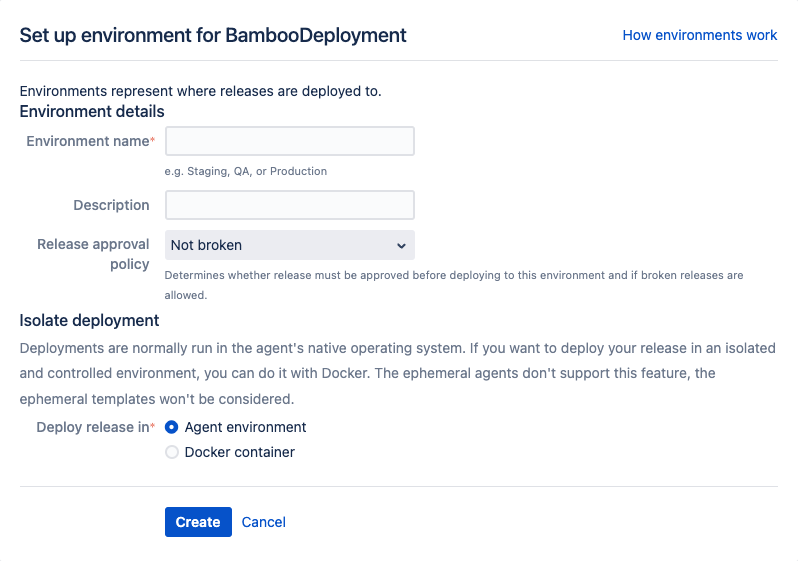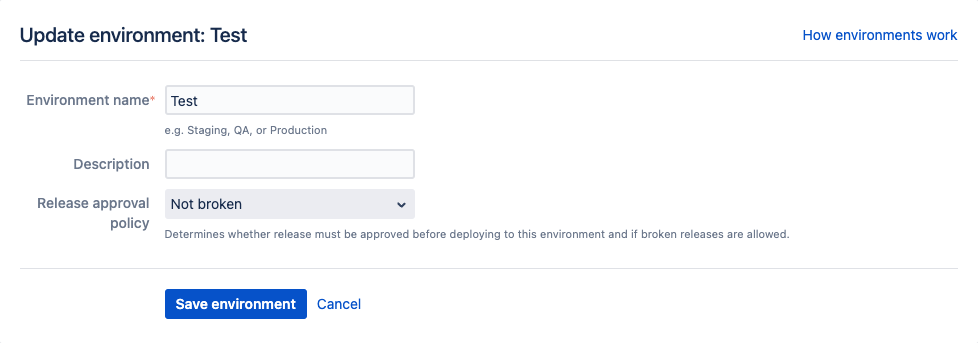Release approval policy for deployment environments
Every environment has its own Release approval policy setting that controls whether a release must be approved before it can be deployed to an environment and if broken releases are allowed. This setting is configurable through both the Bamboo web interface and Bamboo Specs.
Set the release approval policy in Bamboo
In the Bamboo web interface, you can define the release approval policy when setting up a new deployment environment or when editing the settings of an existing deployment environment. Learn how to create or edit a deployment environment in Bamboo
The following release approval policies are available:
Not broken — the release can't be marked as broken. A broken release mark has a higher priority than any number of approvals. This is the default choice.
Approved — the release must be approved at least once. However, no number of approvals can override a broken release mark.
None — there are no requirements at all. Any release can be deployed to such an environment.
The release approval policy applies to both deployments started manually and deployments triggered automatically. Because of that, the deployment won't start if the release approval policy requirements are not met at the time of the trigger occurring.
Set the release approval policy in YAML Specs
To set the release approval policy for an environment in Bamboo YAML Specs, to the environment definition field, add a release-approval-prerequisite key with one of the following values:
not-brokenapprovednone
For example:
version: 2
# ...
QA:
release-approval-prerequisite: approved
# ...Set the release approval policy in Java Specs
To set the release approval policy for an environment in Bamboo Java Specs, to the environment definition, add the releaseApprovalPrerequsitie property with one of the following values:
Environment.ReleaseApprovalPrerequisite.APPROVEDEnvironment.ReleaseApprovalPrerequisite.NOT_BROKENEnvironment.ReleaseApprovalPrerequisite.NONE
For example:
Environment environment = new Environment("QA")
.releaseApprovalPrerequisite(Environment.ReleaseApprovalPrerequisite.APPROVED);
